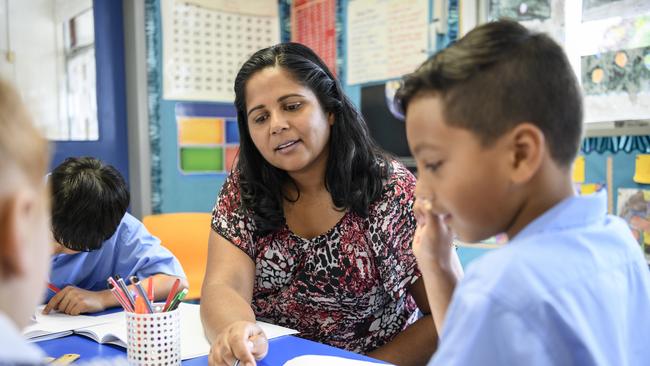Independent schools losing faith in religious discrimination bill
NSW independent schools say draft religious discrimination bill removes right to preference staff.

Independent schools in NSW that collectively teach more than 200,000 students say the government’s draft religious discrimination bill will remove their right to preference teachers of their faith and fulfil their religious ethos.
Reopening a debate over religious freedom in schools, the Association of Independent Schools of NSW — representing 500 schools and campuses — has called for the same discretion in hiring decisions as other employers whose objectives are based on deeply held values, such as political parties.
The submission to Attorney-General Christian Porter warns that the legislation “inadvertently erodes the capacity of faith-based schools to foster and promote an ethos consistent with their religious beliefs and values”.
“The ability of faith-based schools to be able to preference the employment of staff and to enrol students sharing their religious beliefs is of vital importance to schools, students and their parents,” association chief executive Geoff Newcombe said in the submission.
The draft bill makes it unlawful for an employer to discriminate against another person on the ground of their religious belief or activity unless the employment prevents the organisation or school from carrying out “inherent requirements”.
For example, if a Christian or Muslim school were hiring a religious education teacher, it could be seen as an “inherent requirement” that teacher be of the school’s faith.
The association says if there were two equally qualified candidates for the role of an English teacher but one was agnostic and the other shared the religious beliefs of the school, it could be seen as discriminatory to hire the latter.
AIS NSW said there was not always an “inherent requirement” to hire a teacher of the school’s faith, citing the English teacher example, exposing them to a claim of discrimination.
Religious schools want the “inherent requirements” exception removed and replaced with a positive statement that a religious educational institution can “appoint, or prefer to appoint, employees from the religion upon which the … institution is based”.
“The (inherent requirements) exception … does not provide the necessary certainty and protection for faith-based schools who seek the right to select staff as they deem appropriate,” the submission says. “Faith-based schools often employ staff who are not of the same religious belief. In all cases, employees agree to uphold the religious tenets of the school, which may include attending chapel or other religious services or activities.”
The association also noted the draft bill does not allow faith-based schools to preference the admission of students of the same religion as the school. While religious schools “often enrol students of different religious beliefs”, Dr Newcombe said where places were limited, “schools implement an enrolment policy that best reflects their ethos”.
“This includes preferencing students of the same faith as the school,” he said.
“Parents would be concerned if this right to preference those students was undermined by the legislation. Similarly, it would be concerning if the legislation could be invoked to prevent schools requiring students to attend religious observances conducted by the school.”
Support for new religious protections was jeopardised last year following a backlash over a review led by former Liberal attorney-general Philip Ruddock that ignited a debate about the discrimination of gay students and teachers on religious grounds.
The Coalition and Labor failed to reach agreement on a draft bill that would wind back exemptions in the Sex Discrimination Act for religious schools, and the government moved to defuse the impasse by referring the issue to the Australian Law Reform Commission for review.
The ALRC is due to report in December 2020 while submissions on the draft religious discrimination bill closed on Wednesday.




To join the conversation, please log in. Don't have an account? Register
Join the conversation, you are commenting as Logout